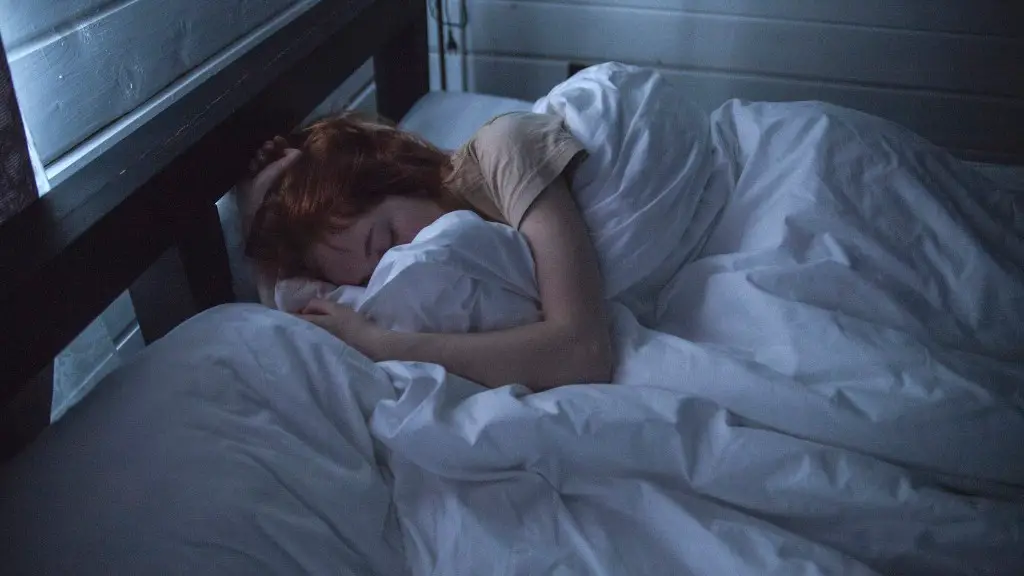There is much mystery surrounding dreams and what they are made of. Some say they are a window into our subconscious, while others believe they are simply the result of random electrical activity in the brain. However, there is one thing that everyone can agree on – dreams can be truly fascinating.
Whether you believe that dreams have meaning or not, they can certainly be interesting to explore. Have you ever had a dream that was so bizarre that it left you wondering what on earth it could mean? Or maybe you’ve had a dream that was so realistic, it felt like you were living in another world.
Dreams can be a fun way to explore your imagination and can even give you some insight into your own subconscious thoughts and feelings. So what are dreams made of? That’s for you to discover…
Dreams are made of thoughts, imagination, and memories.
Why do we dream what we dream?
It has been suggested that dreams are influenced by our waking lives in many ways. Some theories suggest that dreaming is a means by which the brain processes emotions, stimuli, memories, and information that’s been absorbed throughout the day. It’s possible that dreams help us to make sense of our waking lives, and to work through any problems or issues we may be facing. Dreams may also provide a way for us to access hidden parts of our psyche, or to explore our creative potential. Whatever their purpose, dreams are a fascinating part of our human experience.
Dreams are a normal part of sleep. They are usually visual images, but can also involve all of the senses. Some people dream in color, while others dream in black and white. Dreams can be pleasant or unpleasant, but usually are not remembered after waking up.
What are dreams made of scientifically
The activation-synthesis hypothesis is a neurobiological theory of dreaming that states that dreams are merely electrical brain impulses that pull random thoughts and imagery from our memories. This theory was first proposed by Harvard scientists John Allan Hobson and Robert McCarley in 1977, and has since been supported by a number of other studies. Although theactivation-synthesis hypothesis is the most widely accepted theory of dreaming, it is not without its critics; some scientists believe that dreams do in fact have a purpose or meaning.
The study found that dreams contain both memories from past and imagined future events. Dreams help us process and store memories, and they also allow us to imagine future events. This suggests that dreams are important for both our personal and mental development.
Why do we forget dreams?
It is thought that dreams primarily occur during REM sleep, when the MCH cells are activated. These cells may prevent the content of a dream from being stored in the hippocampus, which would explain why dreams are often quickly forgotten.
Blind people experience more sensations of sound, touch, taste, and smell in their dreams than sighted people. They are also more likely to have certain types of dreams, such as those involving falling or being chased.
Why do dreams feel so real?
Dreams feel real because we use the same brain to process them!
Parts of the brain that process “real” sensory information in wakefulness are active in REM sleep. The more rational parts of our brain only switch on in wakefulness. This is why dreams play out like any “real” experience!
There is no clear consensus on what dreams actually mean, but there is some evidence to suggest that they can be highly personal and meaningful.Dreams may be a way for our brains to process and make sense of the events and emotions that we experience during the day.For example, if you have a dream about being chased by a bear, it could represent something that is causing you stress or anxiety in your waking life.If you dream about winning the lottery, it could represent a desire or hope for something better in your life.
Can you control your dreams
Lucid dreaming is a powerful tool that can help us heal from traumas and ease our fears. In lucid dreaming, we are aware that we are dreaming and often have control over the dream’s storyline and environment. This allows us to work through our fears and anxieties in a safe and controlled setting. Lucid dreaming occurs during REM sleep, which is when we are most likely to have vivid and memorable dreams. By using lucid dreaming in therapy, we can help treat conditions like recurring nightmares and PTSD.
Shared dreaming is a special type of dreaming that occurs when two or more people share the same dream environment. The degree to which the dream is shared can vary, from simply having common elements or events that happen in each person’s dream, to the entire dream being identical. Shared dreaming is a powerful way to connect with others on a deeper level and can be used to explore various aspects of the dreamer’s life.
Can a dream turn into reality?
While it’s fun to dream about the future, it’s important to remember that those dreams won’t become reality unless you take action towards them. For example, if you dream about retiring and traveling the world, but don’t make plans to save money appropriately, that dream may not come true. To make your dreams a reality, start by taking small steps towards them and saving up for what you want. With a little planning and dedication, you can make anything happen.
The study found that most dream reports were a continuation of what the dreamer would experience in real life. This is called the continuity hypothesis and it is an important finding in the research of dreams.
Is remembering a dream rare
Scientists say that we dream several times every night, but we only remember dreaming about half the time. Some people remember every night’s dreams, but others have virtually no dream recall.
There is no definitive answer to how long a dream can last. They may last for a few seconds, or up to 20-30 minutes. People are more likely to remember the dream if they are awakened during the REM (rapid eye movement) phase, when dreams are most active.
Why do we dream about someone?
There is no one definitive interpretation of dreaming about someone, as it could mean different things for different people. However, it is generally agreed that dreaming about someone usually reflects how you feel about them in your waking life. It could be a sign that you need to pay more attention to that person in your waking life, or that your subconscious is trying to connect the dots on something and needs your conscious mind to help them figure it out.
One of the most important things to remember about our brain is that it is not fully developed when we are born. It continues to grow and change during this important period of our lives. And, as our brain develops, so does our memory. There are a few things that we can do to help improve our memory during this time. First, we need to make sure that we get plenty of sleep. Sleep is essential for brain development and memory. Second, we need to eat a healthy diet. Eating a diet that is rich in fruits, vegetables, and whole grains will help to improve our memory. Finally, we need to exercise our brains. Doing things like puzzles, memory games, and learning a new skill will help to improve our memory.
Conclusion
There is no one definitive answer to this question. Dreams could be made of anything – images, thoughts, emotions, or memories. They could be random or have meaning. Sometimes people have nightmares, which can be upsetting. Dreams are personal and individual to everyone, so there is no single answer to this question.
There is a lot of debate surrounding what Dreams are made of, but there are a few key points that stand out no matter what side of the argument you’re on. Dreams are a way for our subconscious to work through things that we’re struggling with, whether that be something from our past or present. Dreams can also be a way for our brain to process information and sort through memories. Whatever the case may be, dreams are an interesting and complex part of the human experience.





